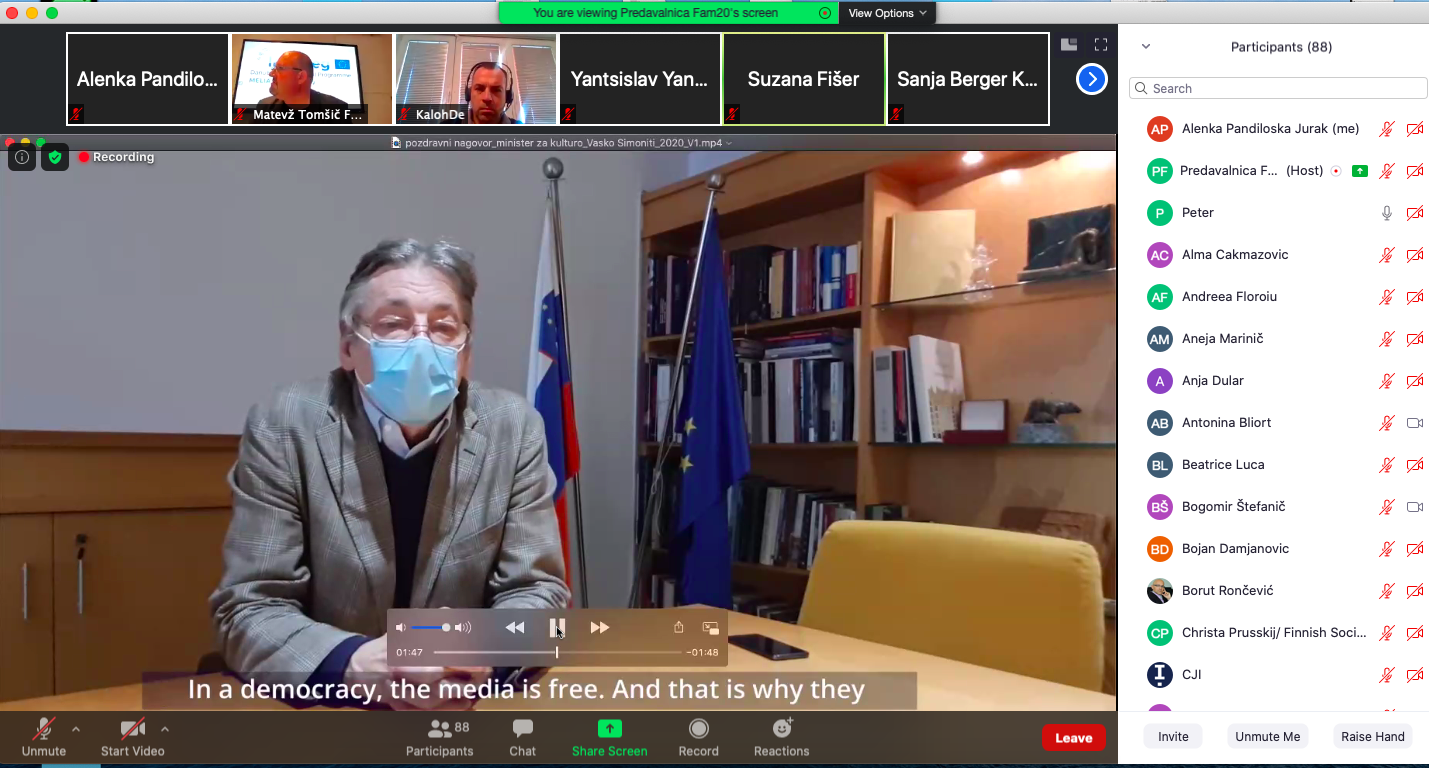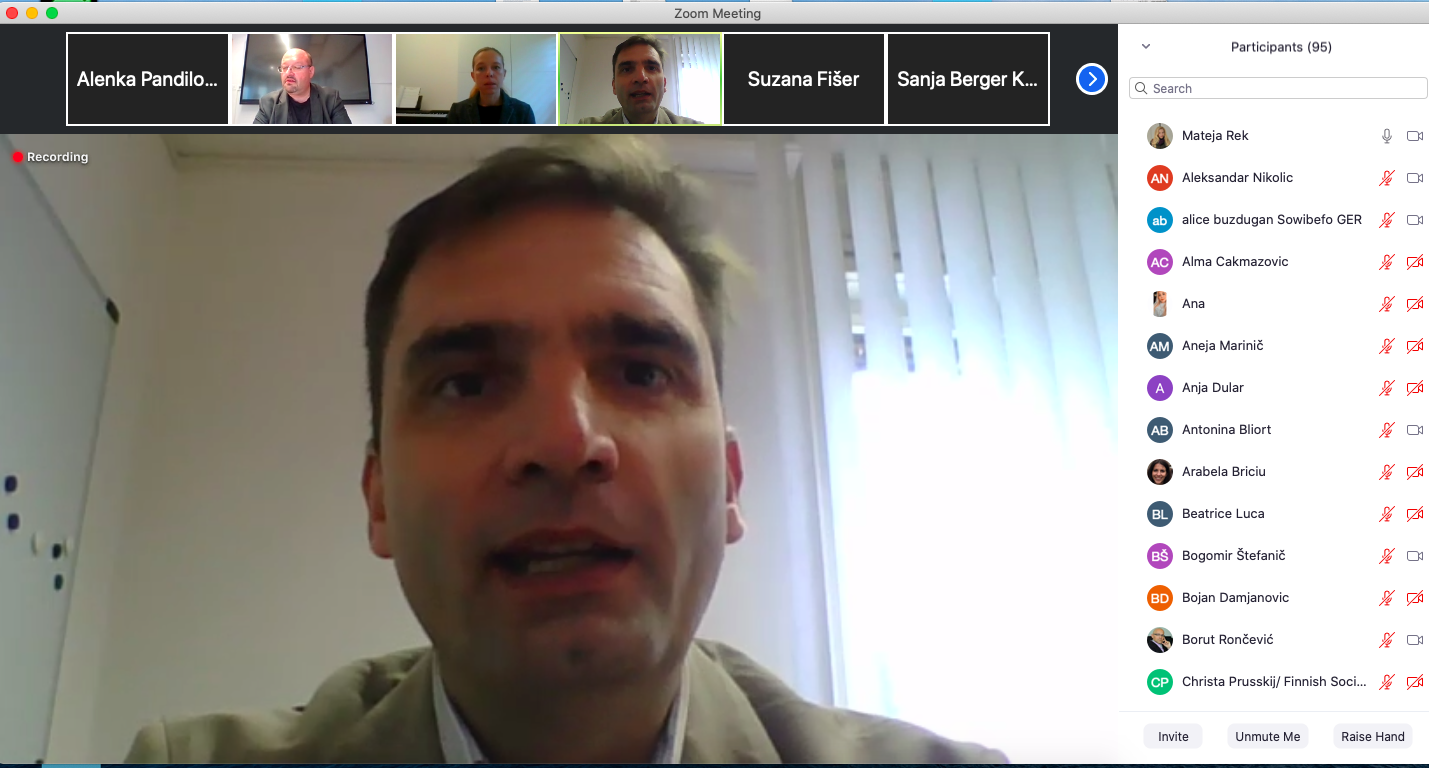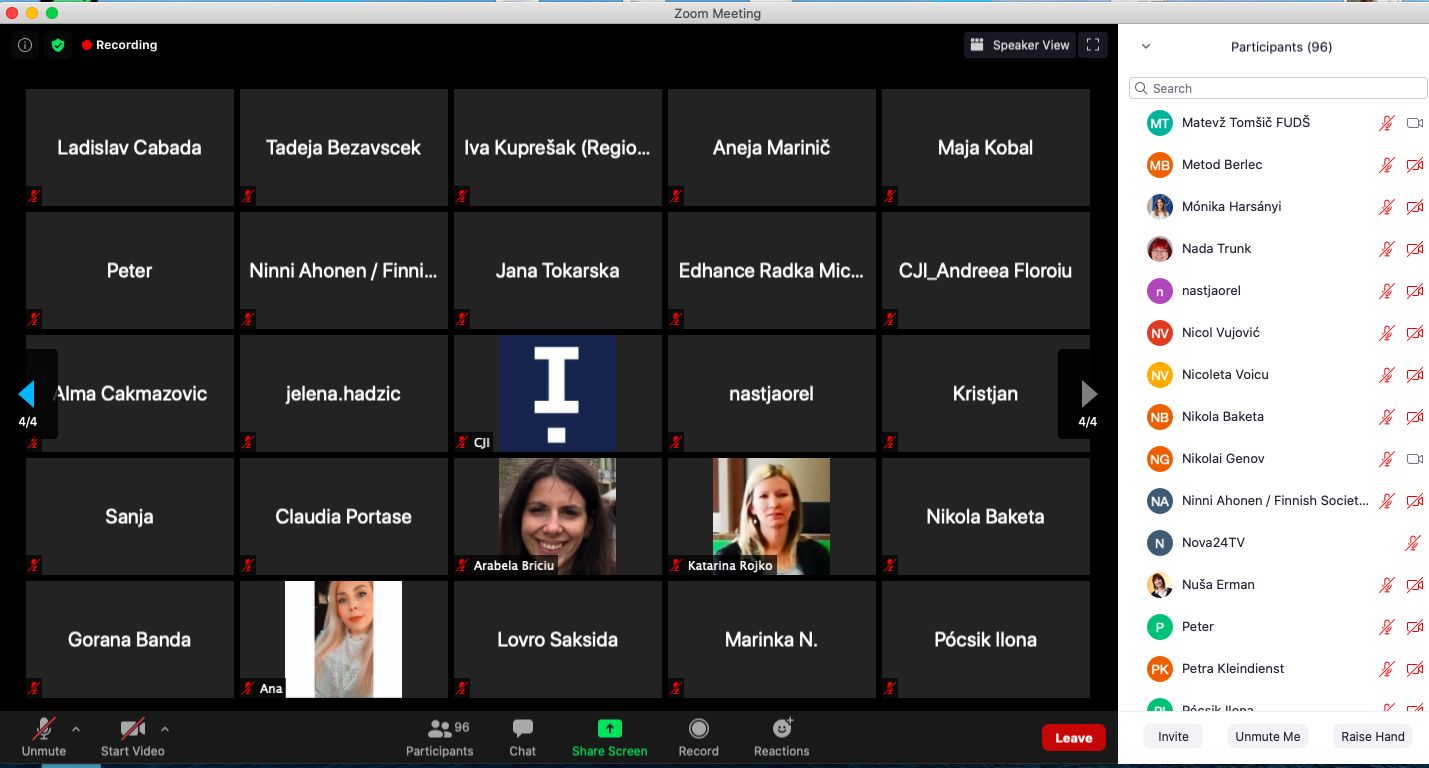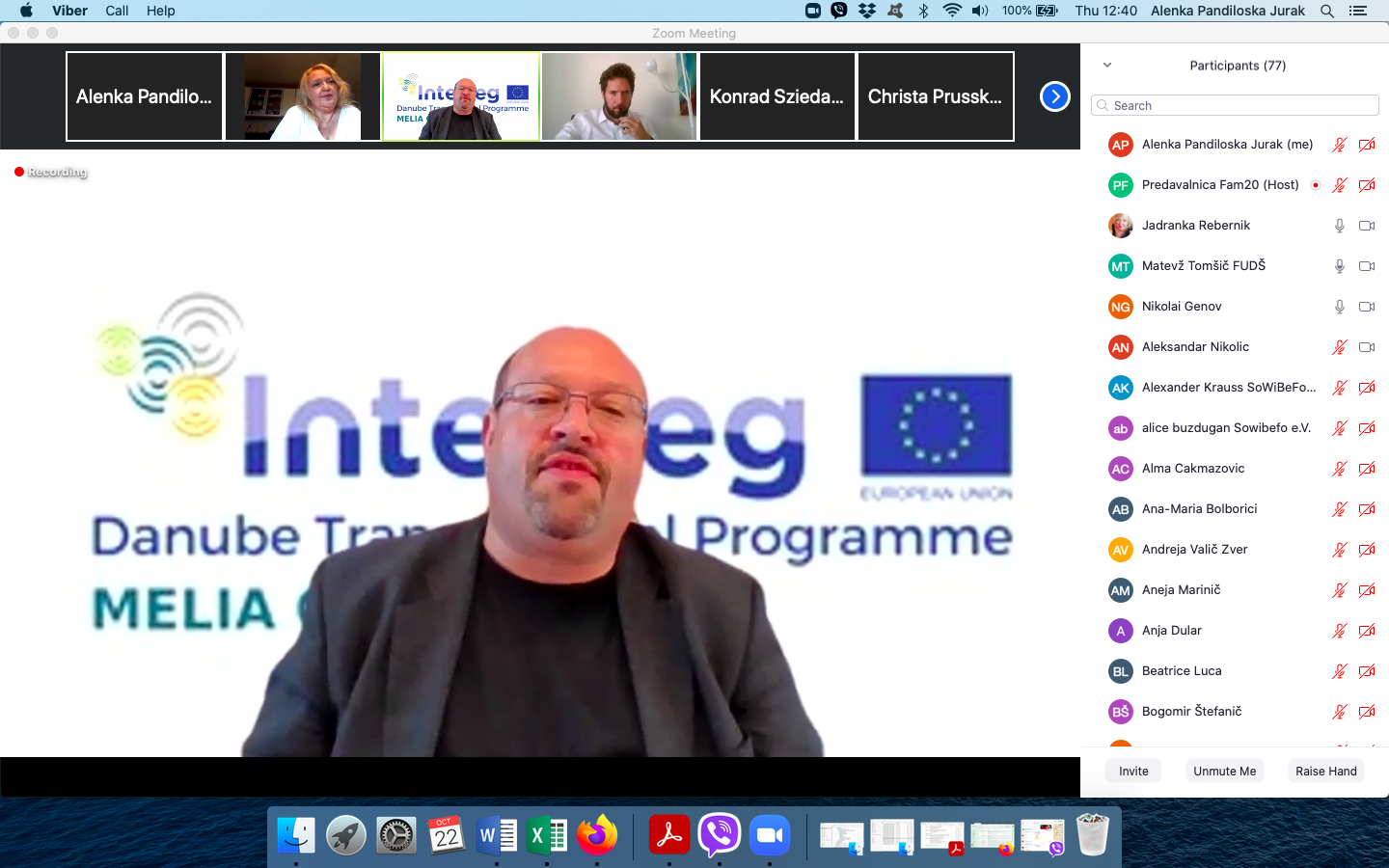MELIA Observatory - KICK-OFF EVENT 22. 10. 2020
27-10-2020
On 22 October 2020, the School of Advanced Social Studies as the main organizer, together with an international consortium, organized the launch event of the project Media Literacy Observatory for Active Citizenship and Sustainable Democracy (MELIA Observatory).
The project’s online Kick-off Event was held with the participation of our project partners and different stakeholders, amounting at almost one hundred participants together.
In his opening video message, Mr. Vasko Simoniti, Minister of Culture of the Republic of Slovenia, after greeting the participants, stressed the twofold nature of media: while it is a means to discover the outside world, it might also be used for disinformation and manipulation, especially in non-democratic regimes. Hence, the development of solid media literacy skills is crucial in order to sustain democracy.

Mr. Vasko Simoniti, Minister of Culture of the Republic of Slovenia
Then Dr. Klemen Miklavič, Mayor of the Municipality Nova Gorica, expressed his pleasure to welcome a project on media literacy in Nova Gorica, a topic considered highly important in the region. He also pointed out connections between media literacy and the preservation of democratic values, and he was looking forward to the practical results of the project.

Dr. Klemen Miklavič, Mayor of the Municipality Nova Gorica
The first section of the Kick-off Event offered four presentations which were followed by lively discussions. First Mrs. Claudia Singer explained the significance and relevance of the MELIA Observatory project within the EU Danube Strategy. She praised the project’s intent to reach out to children and young people, then briefly described how the results of the project may contribute to the realization of certain parts of the EUSDR.
The presentation of Prof. Mateja Rek pointed out the importance of media literacy for every age group, how media literacy may support civic engagement, and that young people need to be shown that their media habits have a crucial part in shaping their personality. Mr. Robert Čoban provided us with an insight in the media history of Serbia in the past thirty years, explaining interestingly how the different crises (war, economic, technological) affected the media market and made the emergence and spread of negative phenomena like fake news possible.
Finally, Mr. Ferenc Tolner introduced the participants to the basics of Natural Language Processing, outlining the rather interesting challenges one has to face when trying to convert a language into a form that can be managed by artificial intelligence.

After a brief break, Dr. Konrad Sziedat explained the historical significance of the political education of the youth in Germany. He presented several methods and projects the Bavarian State Centre for Civic Education has developed in order to promote political education. Due to the presentation of Mrs. Christa Prusskij, participants gained an insight into civic education in Finland, learned about the development and the deep roots of media education in the Finnish education system.
The Kick-off Event ended with a roundtable discussion on populism. The conversation of the discussants, Prof. Bojan Bugarič, Prof. Ladislav Cabada, Prof. Nikolai Genov, and Prof. Matevž Tomšič - latter one being the leader of the project partnership – focussed on the definition, characteristic of and the problematic questions raised by populism. All experts stressed the diversity when it comes to defining populism since it can be considered an ideology, as a strategy for political communication, it can be right-wing or left-wing, etc. They all agreed that speaking in general terms about populism is misleading, hence is to be avoided, however, classifying certain types of populism is possible to some extent.

For example, despite the negative connotation the word “populism” is surrounded by, there are “good types” of populism, i. e. when political actors’ intent to help or solve issues the government has failed to handle successfully, is sincere. To some extent, it is possible to make distinctions between Eastern and Western populisms, since a higher inclination towards nationalist and less democratic populism can be observed in the young, less rooted democracies of Eastern Europe, where populist parties rise into power more often and stay in power for longer periods than in Western Europe. Yet again, a country-specific (or sometimes leader specific) approach is always essential. The closing topic of the roundtable discussion centered around the question of whether one should fight against populism. As Prof. Ladislav Cadaba emphasized: one should not fight against populism itself, since it is an inherent feature of politics; one should fight those types of populism which are anti-democratic and try to undermine rule of law and democratic institutions. “The weapon” is the strengthening of civil society and providing the means to protect themselves against malicious misinformation attempts.
